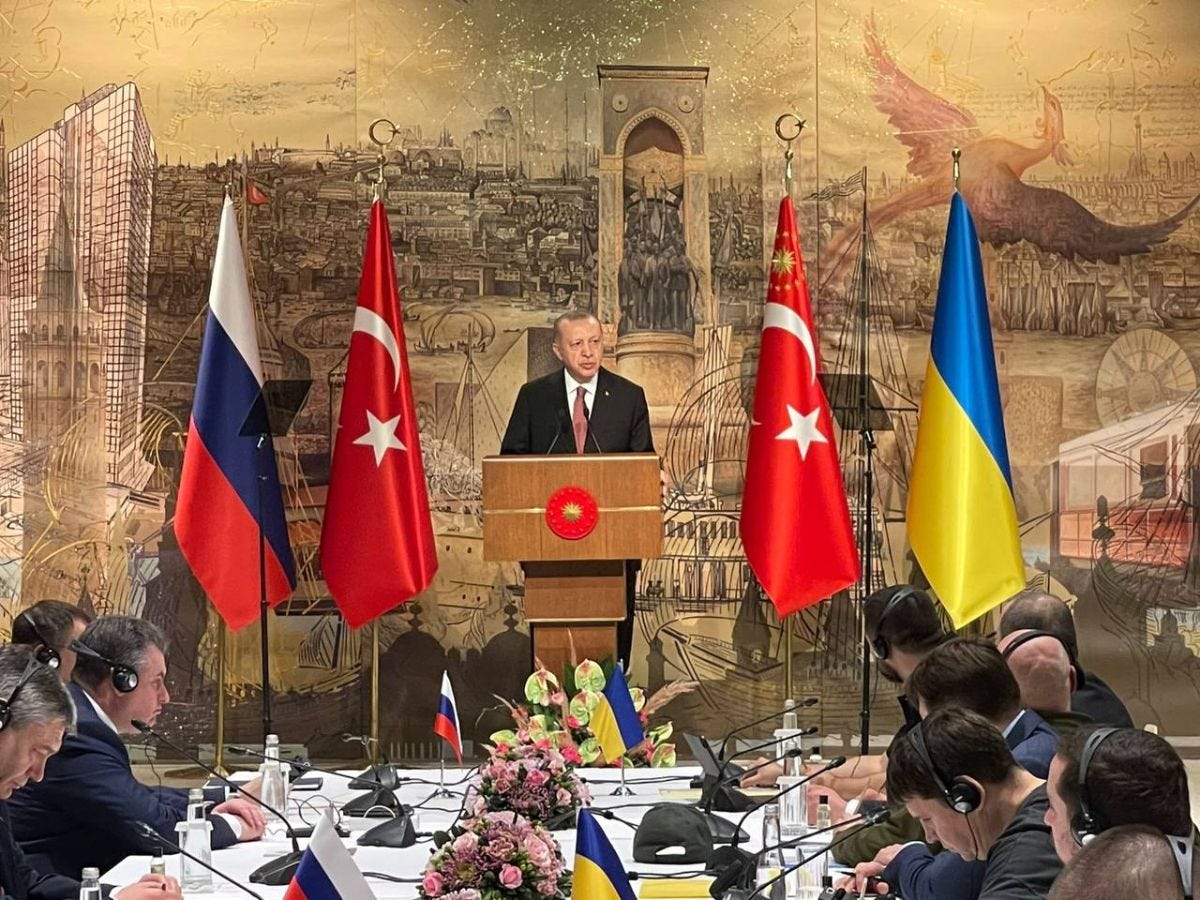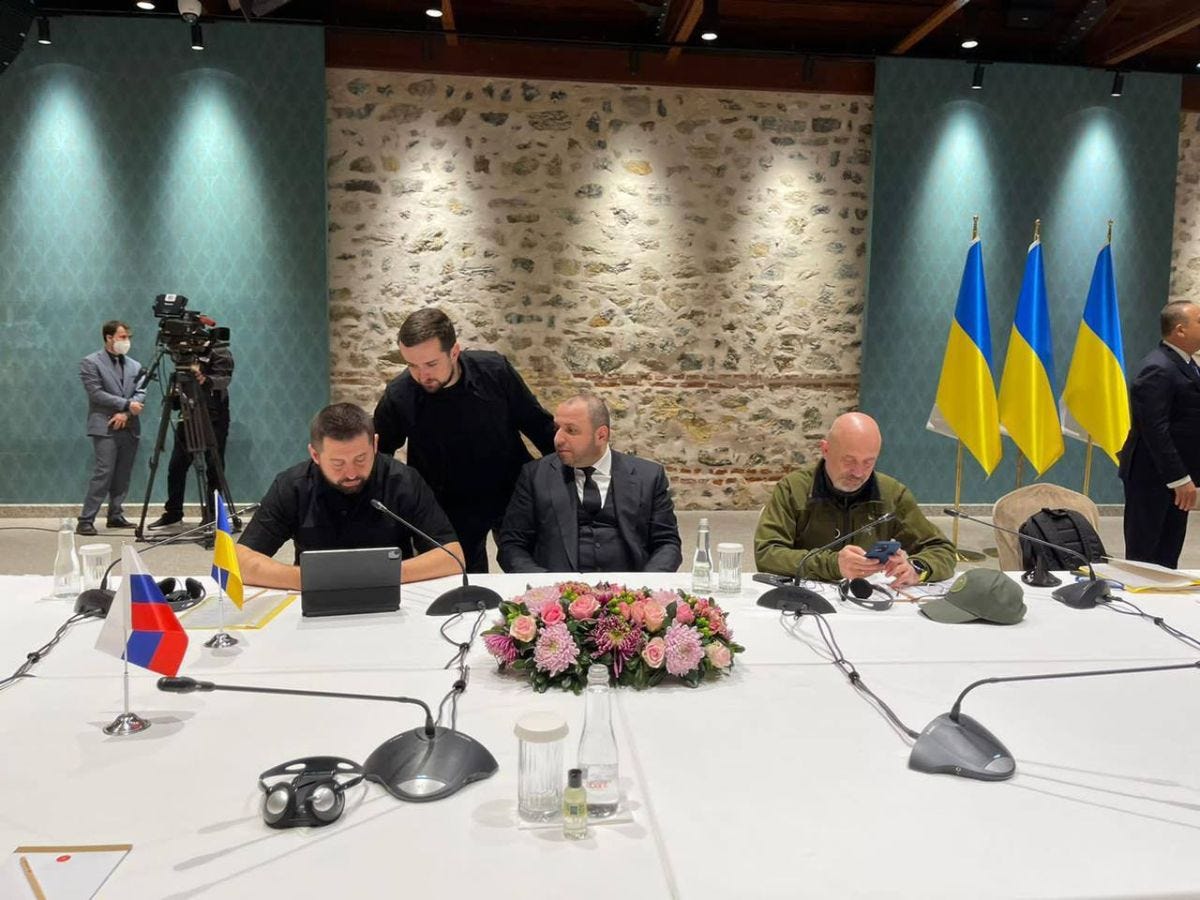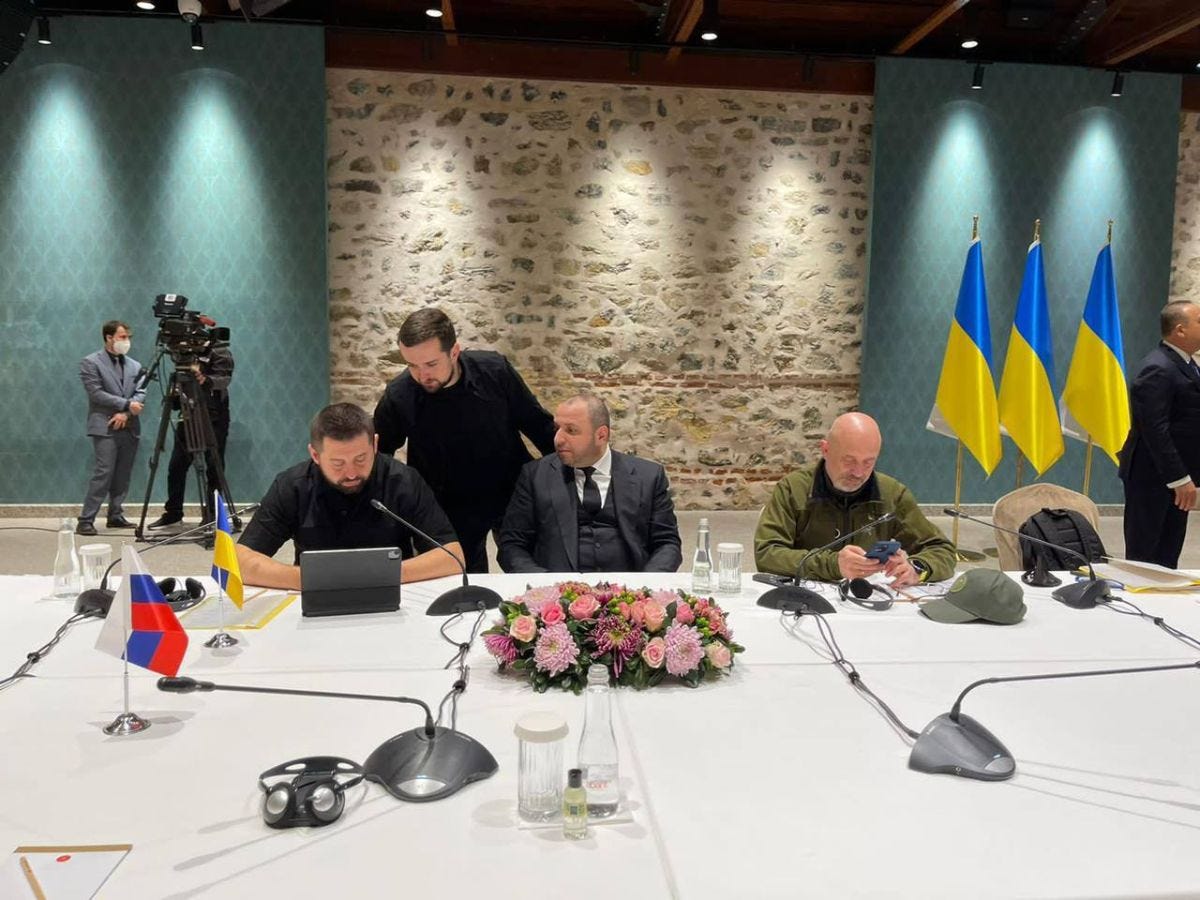by Gabe Fleisher
Good morning! It’s Wednesday, March 30, 2022. Election Day 2022 is 223 days away. Election Day 2024 is 951 days away.
Hope you’re all doing well this morning! You may have noticed a new format for the “Look ahead” section this week. I love putting that section together, because I think it’s really important for people to know what their elected leaders are doing — and it’s information not many other news outlets offer on a daily basis.
My hope is that the new format still gives you that same essential information, but in an even more readable and digestible way. But let me know what you think! This newsletter is all about making the news easier to navigate for you, so your feedback is what’s most important to me.
On that note, I’ve been loving the feedback lately on the final section of the newsletter, where I’ve been including a more hopeful news story or statistic. I’m so glad to hear those stories have brightened your days! It’s definitely been a lift just writing about them.
As always, if you like what you see in Wake Up To Politics, it’s appreciated if you send the newsletter on to someone else and encourage them to subscribe.
You can point them to wakeuptopolitics.com to sign up!
Russia-Ukraine peace talks fail to yield major breakthrough
By Miles Hession, WUTP global contributor
Fighting continues to rage in Ukraine this morning after the latest round of peace talks in Istanbul this week failed to deliver an end to the war.
Russia had raised some hopes of peace Tuesday with its pledge to ease combat in the major northern battlegrounds of Kyiv and Chernihiv, but the promise was quickly proved folly this morning as attacks continued in Chernihiv.
“No one should be fooled by Russia’s announcements,” White House communications director Kate Bedingfield told reporters, referring to the Kremlin’s troop movements as a “redeployment and not a withdrawal.”
Once again, Western officials say, Russia’s true motives can be discerned by looking to the past: Russia has similarly used peace talks in the ongoing war in Syria as diplomatic cover for military recalibrations, and these talks seem consistent with that pattern.
Indeed, many analysts believe that Russia is only adjusting away from northern Ukraine, where it is losing ground, to focus its efforts on the southern front. The Russians have particularly focused on the southern city of Mariupol: taking over the port city would give them a link to other territory they effectively control in Crimea and the Donbas region.
While the end of the war appears out of reach for now, this week’s peace talks did illuminate where a possible deal between Russia and Ukraine might be headed, and highlight who the key players in those negotiations will be:
The outlines of a possible deal
While no final deal was inked, some progress was made on the demands and concessions that would have to be made to ensure peace.
Ukraine pushed forward a plan to hold a 15-year consultancy period to determine the legal status of Crimea, which has been under de facto Russian control since its invasion in 2014. That would pave the way for more international recognition of Russian control over Crimea.
Ukraine also signaled some willingness to hold a referendum to determine the status of the Donbas region.

Regarding security guarantees, Ukraine has offered to abandon its aspirations of joining NATO if there could be a separate security alliance set up to protect it from future attacks while maintaining its neutrality.
Russia also appears to have dropped three demands that it previously insisted be included in a peace agreement: that Ukraine “denazify,” “demilitarize,” and impose legal protections for the Russian language in Ukraine.
The Kremlin also appeared open to Ukraine joining the European Union, if not NATO.
Although the possible outlines of a deal appear to be coming into focus, the fog of war makes it difficult to judge whether the two sides will actually be able to forge an agreement soon. A Kremlin spokesperson stressed this morning that no meaningful breakthrough had appeared in the talks.
Key players in the talks
By hosting the peace talks, Turkish president Recep Tayyip Erdoğan has also staked out a role for himself in the negotiations. Turkey has often had to balance the West’s interests with those of Russia, and this conflict is no different.
While it has supplied its NATO ally Ukraine with weapons, Turkey has refused to sanction Russia, and is looking for an exit to the war so it can maintain its balancing act.
Also, with war raging on in a neighboring country, Turkey is likely looking to avoid further blowback that could damage its economy and tourism sector further.
Another high-profile figure to take the spotlight in Istanbul was Roman Abramovich, a Russian oligarch who has positioned himself as a neutral intermediary between Russia and Ukraine.

Abramovich has personal ties to Ukraine’s president Volodomyr Zelensky and has long been in Putin’s ear, a unique position he has sought to use to mediate peace talks.
The oligarch has steered away from media attention, and his motivations for joining the talks remain unclear, although he has personally been hit by war-related sanctions.
Over the weekend, the Wall Street Journal reported that Abramovich, along with two Ukrainian negotiators, suffered from symptoms consistent with poisoning after a recent round of peace talks in Kyiv.
Officials from Russia, Ukraine, and the U.S. all dismissed the report, but Ukraine warned its negotiators not to “eat, drink or even touch anything” during the talks in Istanbul regardless.
Catch up
What else you should know this morning.
SCOTUS nomination: “Senator Susan Collins of Maine plans to vote to confirm Judge Ketanji Brown Jackson to the Supreme Court, ensuring that President Biden’s nominee and the first Black woman to be put forward for the post will receive at least one Republican backer.” — New York Times
A fourth Covid shot: “More than 34 million Americans aged 50 and older are now eligible to receive another booster shot, after the Food and Drug Administration said Tuesday that it had authorized a new round of the Moderna or Pfizer and BioNTech Covid-19 vaccines for those who want them.” — CBS News
Here we go again: “In a new interview published Tuesday, former President Donald Trump called on Russian President Vladimir Putin to release any damaging information he has about the Biden family, in a brazen request for domestic political assistance from America's top adversary.” — CNN

Look ahead
How your leaders in Washington are spending their time today. (All times Eastern)
What Biden is doing: Receiving his daily intelligence briefing (8:45 am), having lunch with the vice president (12:30 pm), and delivering remarks on the fight against Covid-19 (1:30 pm).
What Harris is doing: Delivering remarks on a new program to boost minority-owned businesses in Washington, D.C. (11 am), having lunch with Biden (12:30 pm), and meeting with the prime minister of Jamaica (3:50 pm).
What the Senate is voting on: Advancing the nomination of Alvaro Bedoya to be a Federal Trade Commissioner; Confirming Judith Pryor as the First Vice President of the Export-Import Bank.
What the House is voting on: H.R. 5706, the Stop Sexual Assault and Harassment in Transportation Act; H.R. 5673, the Safeguarding Tomorrow through Ongoing Risk Mitigation Technical Corrections Act; H.R. 5343, the FEMA Caseworker Accountability Act; and H.R. 5547, the Care is an Economic Development Strategy Act.
Plus: S. 400, renaming the Transportation Department headquarters; S. 2938, renaming a Florida courthouse; S. 1226, renaming a Pennsylvania courthouse; S. 233, renaming a Texas border patrol station; and S. 2126, renaming a Wyoming federal office building.
Congressional committee hearing of note: CDC Director Rochelle Walensky and Surgeon General Vivek Murthy will give a Covid update to the House Select Subcommittee on the Coronavirus Crisis (10 am).
What the Supreme Court is doing: Hearing oral arguments in Viking River Cruises, Inc. v. Moriana (10 am), a case on arbitration agreements.
What else is happening: Biden’s communications director Kate Bedingfield will hold the daily White House press briefing (2:30 pm).
Links to watch for yourself: Senate session • House session • Covid hearing • Supreme Court oral arguments
Before I go...
One story to renew your faith in humanity: Journalism is a competitive business, and there are few rivalries in the modern media industry fiercer than the one between dueling cable news networks Fox News and CNN.
But, when three Fox employees took fire in Ukraine earlier this month, journalists from CNN and Fox worked together to track them down.
Sheltered in CNN’s makeshift newsroom in a Kyiv hotel suite, CNN chief international correspondent Clarissa Ward and Fox foreign correspondent Trey Yingst made call after call to morgues and hospitals until discovering the whereabouts of the assaulted journalists.
Read more from the Wall Street Journal.
That’s it for today. If you enjoy Wake Up To Politics, it’s always appreciated if you donate to support the newsletter or buy some merch. Or if you tell your friends and family to sign up at wakeuptopolitics.com.
If you have any questions or feedback, feel free to email me: my inbox is always open.
Thanks for waking up to politics! Have a great day.
— Gabe






